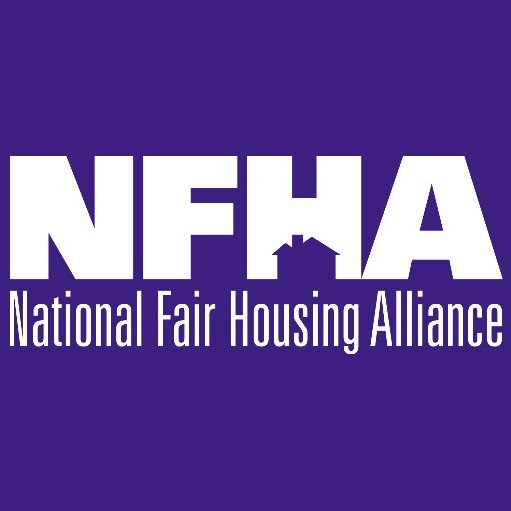BREAKING: Trump Administration Launches Attack on Core Civil Rights Protection

FOR IMMEDIATE RELEASE
August 1, 2019
Contact: Jessica Aiwuyor | (202) 898-1661 | jaiwuyor@nationalfairhousing.org
BREAKING: Trump Administration Launches Attack on Core Civil Rights Protection
FOR IMMEDIATE RELEASE
August 1, 2019
Contact: Jessica Aiwuyor | (202) 898-1661 | jaiwuyor@nationalfairhousing.org
BREAKING: Trump Administration Launches Attack on Core Civil Rights Protection
HUD’s Proposed Rule to Gut Civil Rights Protection Under Fair Housing Act Threatens People of Color, Women, Immigrants, Families with Children, People of Faith, LGBTQ Persons, People with Disabilities, and other Communities
WASHINGTON – The National Fair Housing Alliance today condemned one of the Trump administration’s most extreme moves yet to dismantle civil rights protections. A proposed rule to be released by the Department of Housing and Urban Development (HUD) would destroy a key civil rights legal tool under the Fair Housing Act called “disparate impact.” HUD’s rule would make it much harder to challenge covert discriminatory practices by financial institutions, insurance companies, and housing providers, and open the floodgates for widespread discrimination against millions of people, particularly communities of color, women, immigrants, families with children, people of faith, LGBTQ persons, and people with disabilities.
The Fair Housing Act bars not only intentional discrimination, but also the use of policies that appear neutral on their face but have effects that have an unnecessary “disparate impact” on vulnerable populations such as racial minorities. Disparate impact is a foundational fair housing principle and an essential part of the fabric of fair housing enforcement. The doctrine was established in the 1970s and has been supported by both Republicans and Democrats since then. First employed by the Nixon administration, it requires housing providers, lenders, and others to make sure their policies apply fairly to all persons. Every appellate court to consider the question has found that the Fair Housing Act bars practices with unjustified disparate impact. In the landmark 2015 case Texas Department of Housing and Community Affairs v. Inclusive Communities Project, the Supreme Court agreed, finding that disparate impact is critical to the Fair Housing Act’s ability to accomplish its “continuing role in moving the Nation toward a more integrated society.” The Court acknowledged a 2013 HUD rule that recognized disparate impact claims and provided a framework for litigating them, never suggesting that anything in the rule was invalid.
Nonetheless, HUD now proposes changes to the 2013 rule that would gut effective disparate impact enforcement. This is one of the most overt assaults so far in the Trump administration’s crusade to dismantle essential civil rights protections. The National Fair Housing Alliance and a coalition of advocates are launching a campaign to “Defend Civil Rights” aimed at mobilizing thousands of people across the country to oppose the proposed rule and sound the alarm on its widespread, harmful consequences.
“The National Fair Housing Alliance strongly condemns HUD’s attempt to obliterate a bedrock tool for fighting discrimination in housing,” said Lisa Rice, president and CEO of the National Fair Housing Alliance. “At a time when racial disparities in housing are stark, the racial wealth gap is growing, the African American homeownership rate has declined to historically low levels, and over four million instances of housing discrimination occur each year, it is critical to preserve and strengthen the tools we have to ensure that everyone is treated fairly in their search for housing.”
“Some policies can appear neutral on the surface, but unfairly exclude certain groups of people in practice. Disparate impact allows us to identify and eliminate harmful, inequitable, and unjustified policies so that everyone is treated fairly,” said Rice. “With the proposed rule, HUD would gut the most effective tool under the Fair Housing Act to detect and redress systemic discrimination. The Trump administration seems determined to take this nation back to the days when housing discrimination was the norm. This is contrary to our country’s values of fairness and equity. We have come a long way, but we are still far from eliminating discrimination in our housing markets. We call upon HUD to withdraw this offensive proposal.”
HUD’s proposed rule would make drastic changes and institute dangerous exceptions to the longstanding disparate impact tool. Key proposed changes include:
- Profits above all else: Language in the proposed rule suggests that a rule or policy that is profitable could be immune from challenge for its discriminatory impact—with the burden on discrimination victims to show that a company can make at least as much money without discriminating.
- Overwhelming obstacles to prove discrimination: Victims of discrimination will face a drastically higher burden to prove a disparate impact claim under the Fair Housing Act. The newly proposed burden of proof standard will be much higher than what is required in employment, education, or other civil rights areas.
- Discrimination by algorithm: HUD’s proposed rule would provide special defenses for business practices that rely on statistics or algorithms. Algorithmic models—such as credit scoring, pricing, marketing, and automated underwriting—are practices where disparate impact is critical to rein in discrimination. They can have starkly discriminatory effects but can operate as a black box, making those discriminatory effects difficult to attribute to any person’s intentional discrimination. HUD’s proposed rule could effectively immunize such covert discrimination by algorithm.
- Possible exemptions for the insurance industry: The proposed rule has language specific to the insurance industry that appears to be laying the groundwork for HUD to exempt that industry, in whole or in part, from disparate impact liability.
Banking and insurance trade groups are leading the charge to dismantle this important Fair Housing Act protection. Many of these groups represent institutions that engaged in redlining of communities of color or, more recently, “reverse redlining,” the toxic and discriminatory predatory mortgage lending blitz in those same vulnerable communities that preceded the foreclosure crisis a decade ago. By prioritizing profit over soundness and fairness, these institutions tanked our economy and reaped the benefits of economic recovery measures while stripping wealth from communities of color that are still recovering.
When Americans are denied equal access to housing, it reduces the availability of good jobs, quality education, safe streets, and a clean and healthy environment. Our federal enforcement agencies, including HUD, should be actively using disparate impact as a tool to stop illegal housing discrimination, not gutting it. With rising fair housing claims and racial inequality, we cannot afford to lose this critical civil rights tool.
To learn more about the campaign to Defend Civil Rights, visit nationalfairhousing.org. Together, we can keep housing fair.
About the National Fair Housing Alliance
Founded in 1988, the National Fair Housing Alliance is a consortium of more than 220 private, non-profit fair housing organizations, state and local civil rights agencies, and individuals from throughout the United States. Headquartered in Washington, D.C., the National Fair Housing Alliance also provides comprehensive fair housing education, advocacy and enforcement programs.
###
